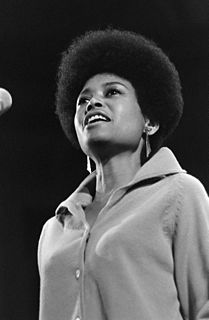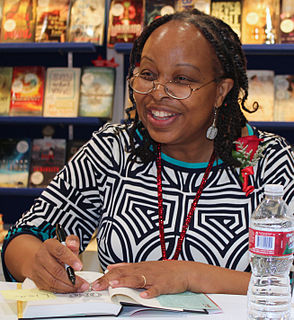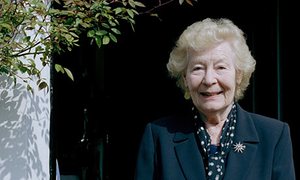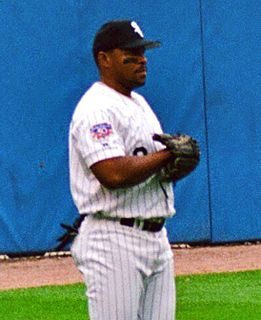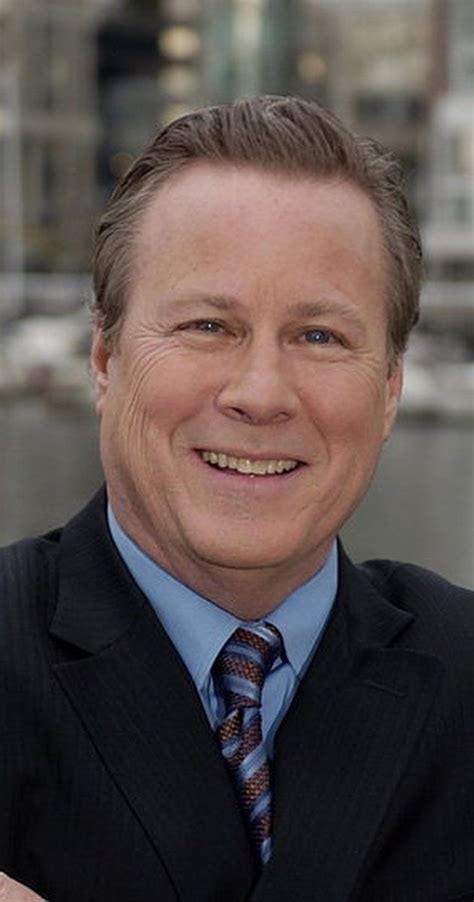A Quote by Shabana Azmi
It's interesting to see how 'Arth' still touches a chord in people's hearts all these years later. Men were very hostile when the film was shown in 1984. They were angry and said things like I'm teaching women wrong things by saying they have the choice to walk out of their husband's home if they are cheated upon.
Related Quotes
Our goal in the '70s was to end the closed door era. There were so many things that were off limits to women, policing, firefighting, mining, piloting planes. And the stereotypical view of people of a world divided between home and child caring women and men as breadwinners, men representing the family outside the home.
I also loved that there [in Into the Forest] was a beautiful balance to it, where they were strong and survivors and doing things in the film that we normally only see men do, but they were still human and vulnerable, and they still broke and had moments of weakness. That's something that we don't often get to see in these films, either.
One of the great things about being a grandparent is you get to redo what you didn't or couldn't do as a parent. Oftentimes we forget that even while the parent is parenting, they're still a growing person. They're still trying to fix themselves. They're still out there not doing everything a hundred percent correctly. I had the best parents I could ever have, but the kinds of things that they were capable of doing, the things that they said and did, were very destructive to my sister, brother, and me. But they're so much more than those things.
I was less angry at [Carl] Armstrong, though I was angry at the people who came to his trial: Dan Ellsberg, who ordinarily I respected a lot; Philip Berrigan; the guy who teaches at Princeton still - I can't remember his name. And they were saying - well, they were saying, really, what Arthur Koestler had people saying on "Darkness at Noon." The means were unfortunate and, sadly, someone died, but the end is what is important and this was a great symbolic - something or other - sign against the war in Vietnam.
There were so many Cuban-Americans upset that we were going to Cuba and I was curious to see why they were so angry, and anti-Castro. I found out as soon as we got there. The people were treated terrible. The conditions were terrible. I can see why people risk their lives and limbs to get out. (Fidel Castro) lives like a king and won't help anybody, and has everybody scared to death. Nobody lives a normal life. It was still a good experience, but I thought we should just play that one game.
No matter what choice you make, it doesn't define you. Not forever. People can make bad choices and change their minds and hearts and do good things later; just as people can make good choices and then turn around and walk a bad path. No choice we make lasts our whole life. If there's ever a choice you've made that you no longer agree with, you can make another choice.
In the very beginning, women were editors because they were the people in the lab rolling the film before there was editing. Then when people like D. W. Griffith began editing, they needed the women from the lab to come and splice the film together. Cecil B. DeMille's editor was a woman. Then, when it became a more lucrative job, men moved into it.
There were a lot of things in it that were important at the time to me. Cutter's Way movie was very relevant. And I wanted Cutter to succeed as a vet, as a guy coming back from 'Nam, because there were so many guys like that. And there were so many other movies at the time, like Apocalypse Now, Coming Home, and The Deer Hunter, that it was really important that the movie be believable, that I come across a pissed-off vet who'd been there and comes home angry.

